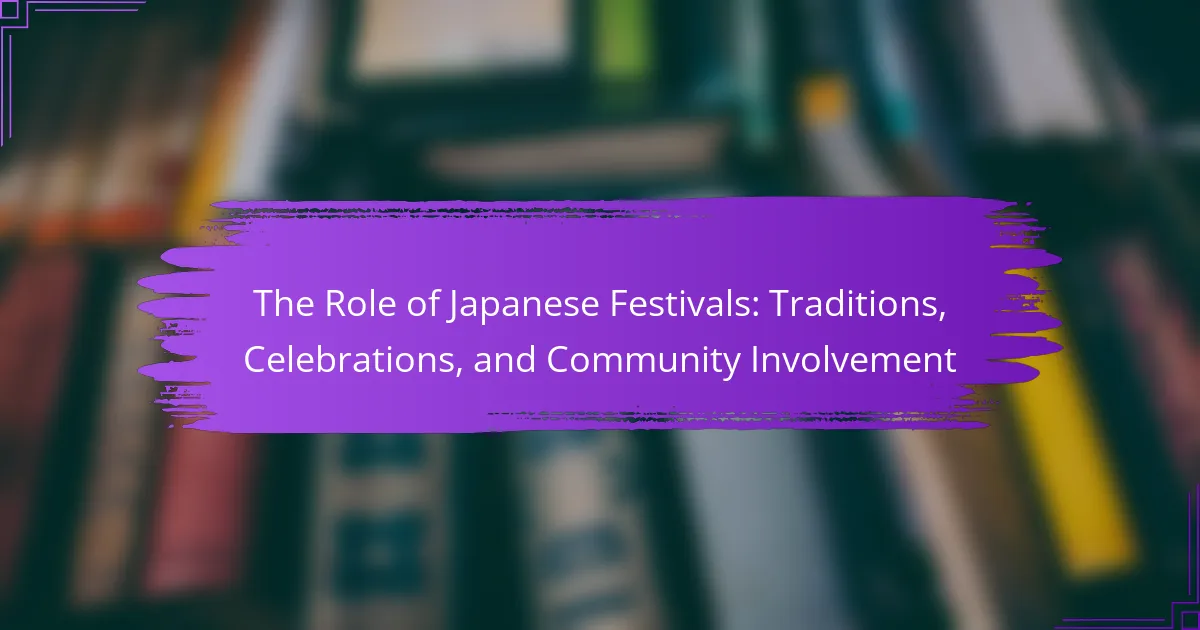What are Japanese Festivals and Their Significance? Japanese festivals, known as “matsuri,” are cultural celebrations that often honor deities, seasonal changes, or historical events. These festivals play a crucial role in preserving and promoting Japanese traditions. They include various activities such as parades, traditional music, dance, and food offerings. Festivals often foster community spirit and […]

Insights into Japanese Cuisine: Ingredients, Techniques, and Cultural Significance
What is Japanese Cuisine? Japanese cuisine is a culinary tradition that emphasizes seasonality, quality ingredients, and presentation. It includes a variety of dishes such as sushi, ramen, and tempura. Rice is a staple food in Japanese meals, often served with fish and vegetables. Traditional cooking techniques include grilling, steaming, and simmering. Japanese cuisine also values […]

Summative Assessments in Online Japanese Courses: Types, Advantages, and Best Practices
What are Summative Assessments in Online Japanese Courses? Summative assessments in online Japanese courses are evaluations that measure student learning at the end of an instructional unit. These assessments typically occur after a course or module is completed. They aim to determine if learners have achieved the desired learning outcomes. Examples include final exams, projects, […]
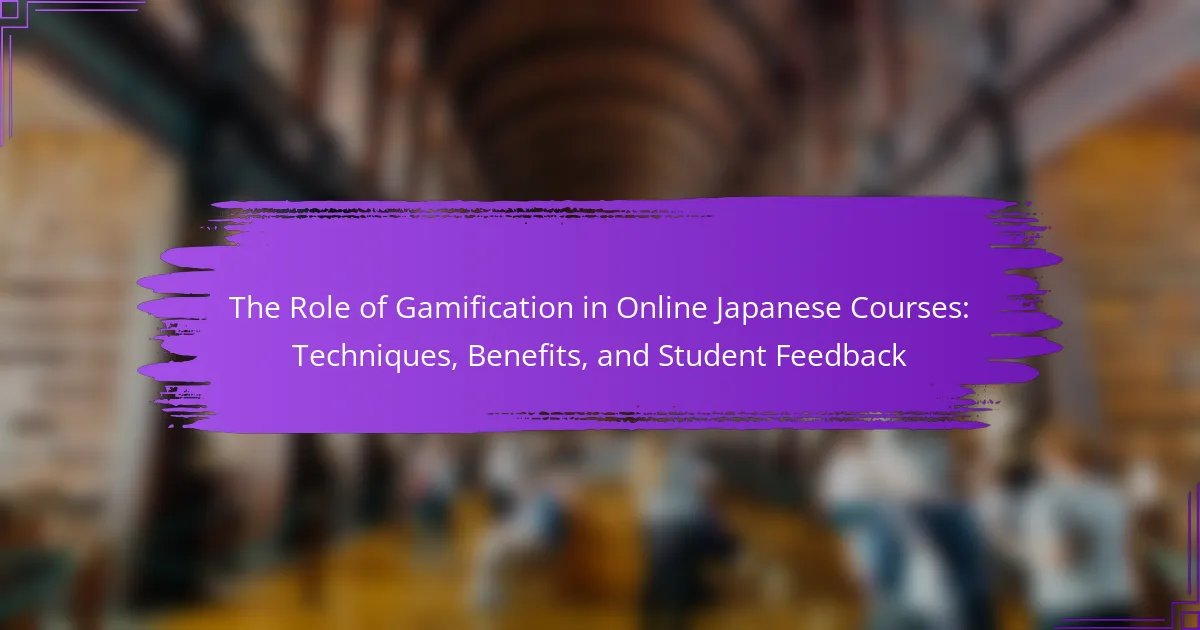
The Role of Gamification in Online Japanese Courses: Techniques, Benefits, and Student Feedback
What is the role of gamification in online Japanese courses? Gamification enhances engagement and motivation in online Japanese courses. It incorporates game-like elements such as points, badges, and leaderboards. These elements encourage students to participate actively in their learning. Research shows that gamified learning environments can improve retention rates. For instance, a study by Deterding […]
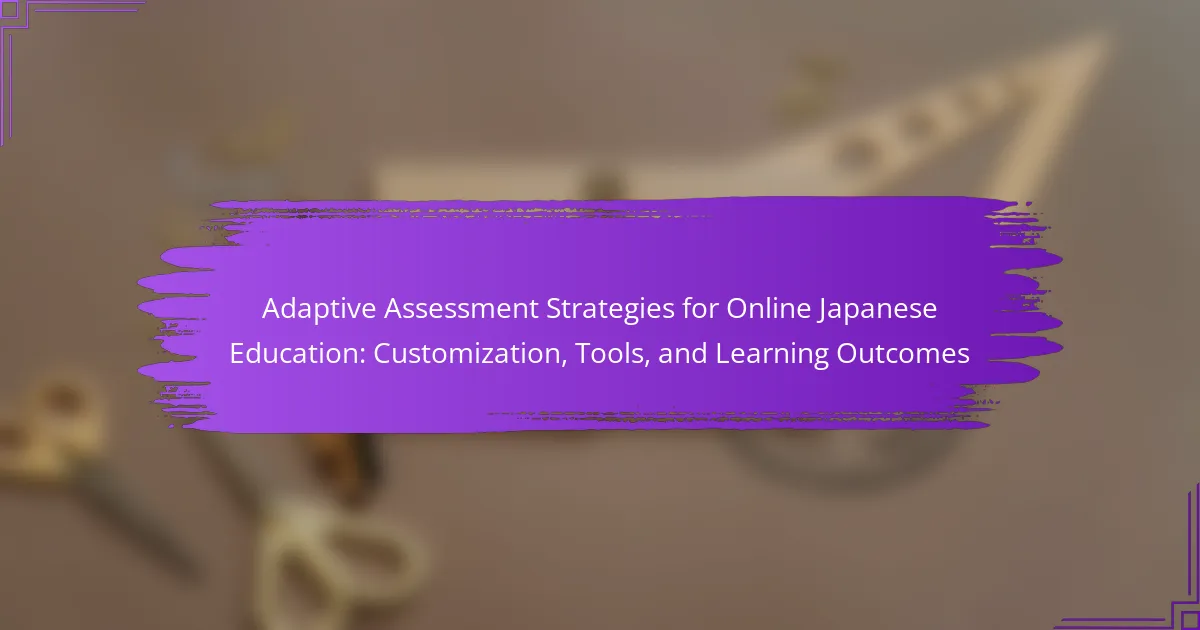
Adaptive Assessment Strategies for Online Japanese Education: Customization, Tools, and Learning Outcomes
What are Adaptive Assessment Strategies in Online Japanese Education? Adaptive assessment strategies in online Japanese education are personalized methods designed to evaluate student progress and understanding. These strategies adjust the difficulty and type of assessment based on individual learner performance. For instance, if a student excels in vocabulary but struggles with grammar, the assessments can […]

Online Japanese Study Groups: Benefits, Formats, and Tips for Effective Collaboration
What are Online Japanese Study Groups? Online Japanese study groups are organized sessions where individuals learn the Japanese language together via the internet. These groups typically consist of learners from various backgrounds and skill levels. Participants engage in collaborative learning activities such as discussions, exercises, and cultural exchanges. Online platforms facilitate communication through video calls, […]
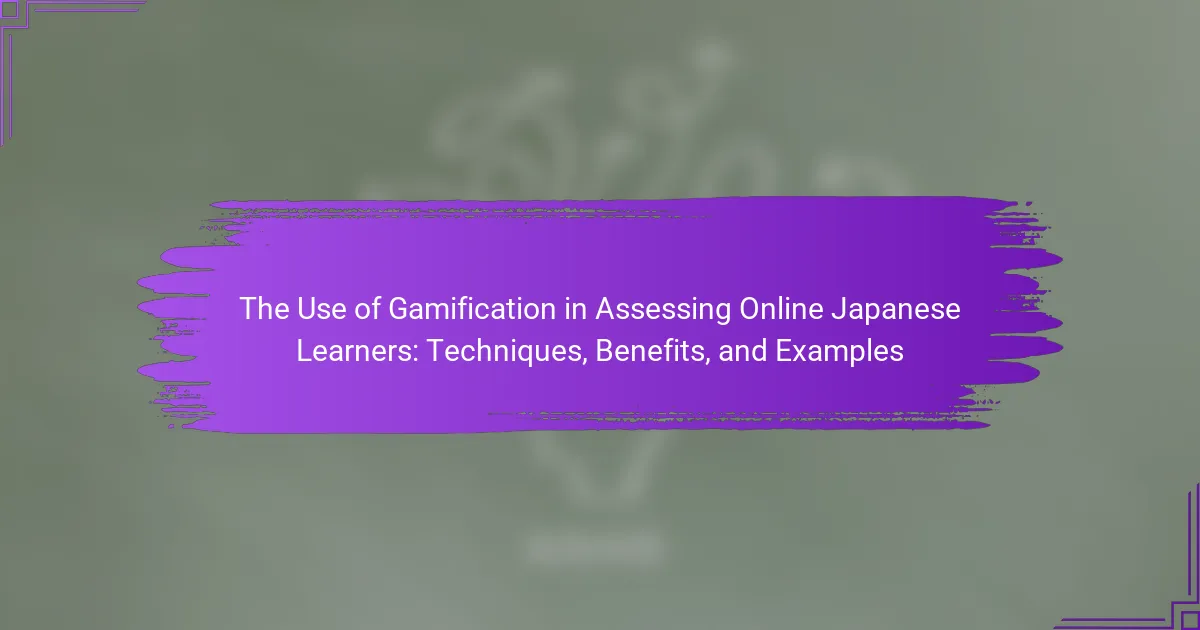
The Use of Gamification in Assessing Online Japanese Learners: Techniques, Benefits, and Examples
What is Gamification in the Context of Online Language Learning? Gamification in the context of online language learning refers to the application of game design elements in educational settings. This approach enhances learner engagement and motivation through elements such as points, badges, and leaderboards. Research indicates that gamification can lead to improved retention rates and […]

Japanese Language Podcasts: Topics, Hosts, and Learning Benefits
What are Japanese Language Podcasts? Japanese language podcasts are audio programs designed for learning the Japanese language. They cater to various skill levels, from beginners to advanced learners. These podcasts often feature conversations, vocabulary lessons, and cultural insights. Many include native speakers to enhance listening comprehension. They can be found on platforms like Spotify and […]
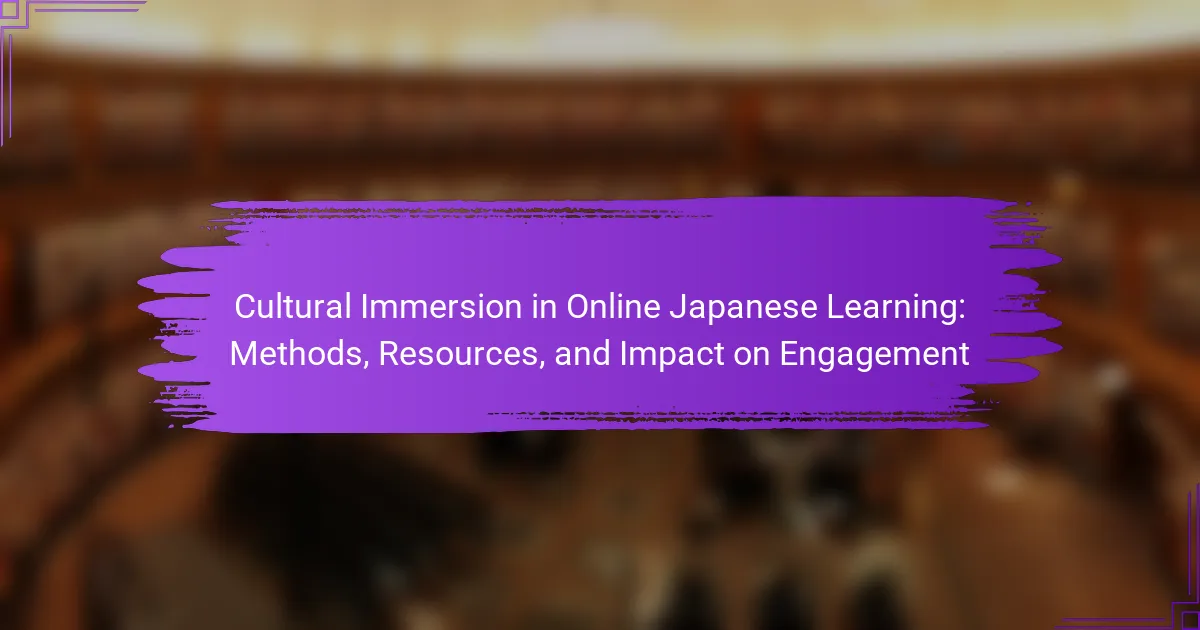
Cultural Immersion in Online Japanese Learning: Methods, Resources, and Impact on Engagement
What is Cultural Immersion in Online Japanese Learning? Cultural immersion in online Japanese learning refers to engaging deeply with Japanese culture while studying the language. This method enhances language acquisition by incorporating cultural context into lessons. It often includes activities like virtual tours, cooking classes, or watching Japanese films. Such experiences allow learners to practice […]

Effective Study Techniques for Japanese Language Acquisition + Resources + Time Commitment
What are Effective Study Techniques for Japanese Language Acquisition? Effective study techniques for Japanese language acquisition include immersion, spaced repetition, and active engagement. Immersion involves surrounding oneself with the language through media, conversation, and cultural experiences. Spaced repetition utilizes tools like flashcards to reinforce vocabulary over time. Active engagement means practicing speaking and writing regularly. […]
